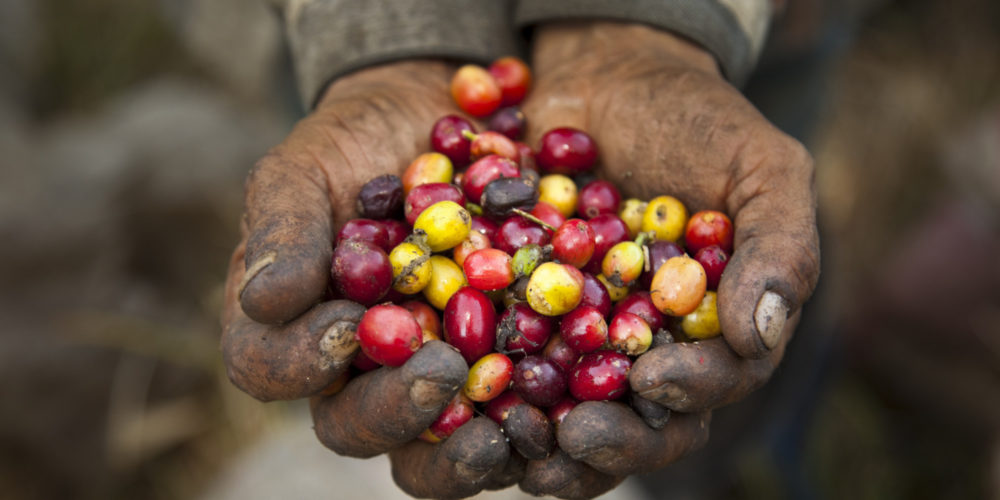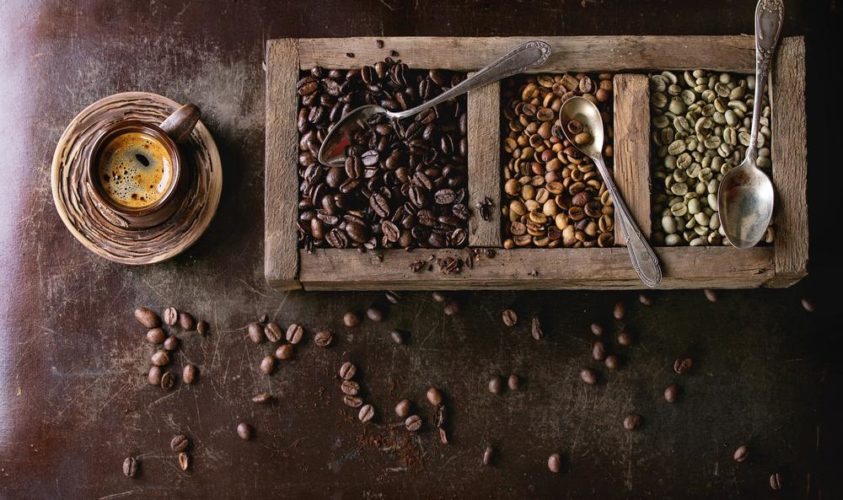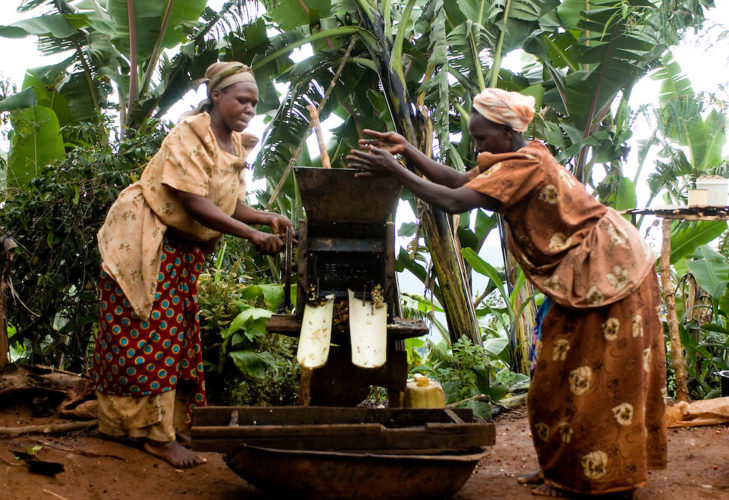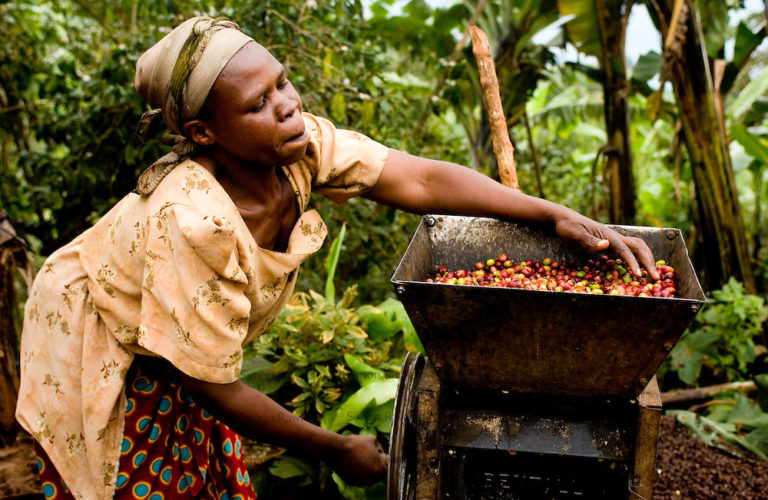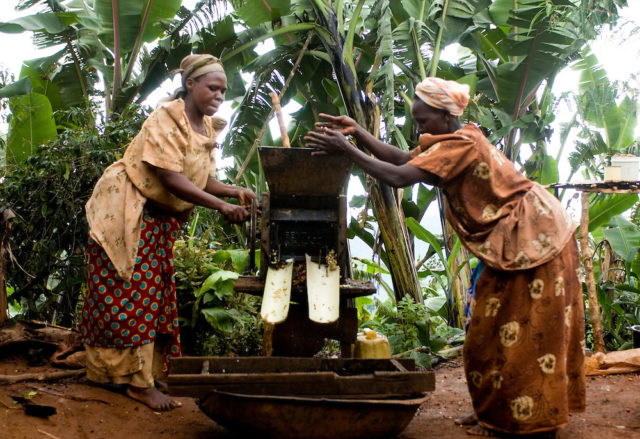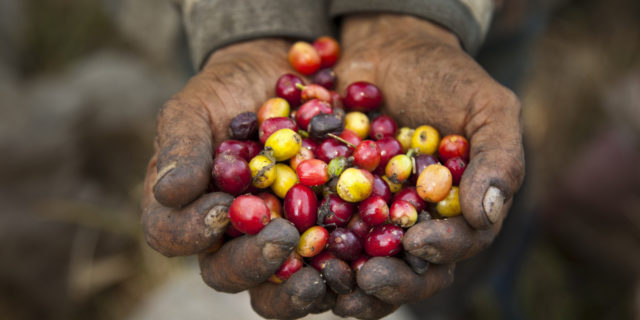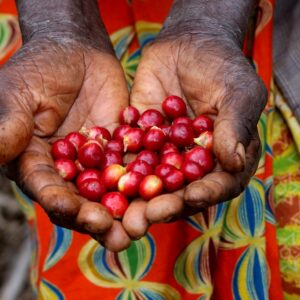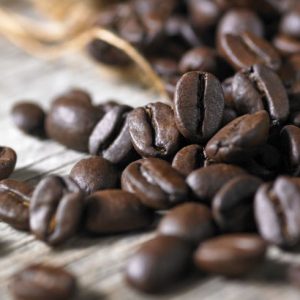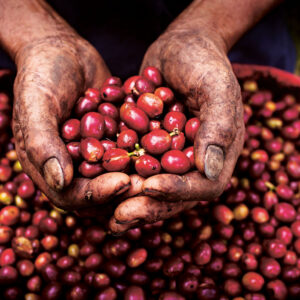How fair is Fair Trade? How fair is our Coffee?
Timon Kaufmann•Beans n Booze
The idea of a cattle jumping up and down a green meadow, happily and well-fed, while we’re pouring its milk in our fair-trade coffee just does taste better. Good karma included. But what does “ Fair Trade ” really mean? And how much money receives the farmer at the end?
The best-known label of its kind is the “ Fair Trade ” label owned by the “Fairtrade Labelling Organization International”, or short FLO. It’s an umbrella organization located in Bonn, Germany, which prescribed itself to all kinds of fair trade since 1997.
The idea of Fair Trade
The concept of this organization is based on the idea to help producers in economical disadvantaged regions earning enough to be able to make a decent life from it. Therefore, most of the time farmers incorporate to build a cooperative. These cooperatives are democratically lead partnerships of convenience, which are forced to hold to certain rules and standards. Talking about coffee this especially means to pay their staff fairly, common usage of heavy and expensive machinery and a regulation on pesticides and fertilizers not to harm the environment.
Members of these cooperatives will get a fixed minimum price for their goods. At the moment, this is around 1,35–1,40 dollars per pound of raw coffee. On top there is a premium of 0,20 dollars/pound, whereof they have to reinvest 75% to optimize infrastructure and 25% to improve the quality of their products. Another 0,30 dollars/pound going in if they produce organic coffee. If the market price is above the fixed minimum price, FLO will pay the market price. Kind of a “Low-Market-Price-Insurance” with benefits.
The other side of Fair Trade
Basically, a very honorable project. But there are always to sides of a story. To be able to enter the cooperatives the farmers have to pay an advance payment. For the first time certification €2.250 are due. On top there is a yearly fee of €525. In return the farmers receive some supportive consulting on how they can boost their efficiency and yield.
But this begs some fundamental questions and problems. Those who are in desperate need of such kind of support are falling through the cracks because they can’t afford the advance payment and fees. Because of this, the poorest stay poor and are even more effected by the dictates of the market.
More than this, long-term studies have shown that the fees farmers have to pay are balancing out the economical benefits. The premiums to build up a better infrastructure are leveled out by the abstinence of high fertilizer and pesticide usage which most of the time results in a lower yield.
In addition the focus on maximizing earnings by increasing production can lower the prices due oversupply on the long run, which returns in lower earnings for same amounts of coffee. But to be realistic, this point is a bit unrealistic as we are facing a coffee shortage by reasons of increasing demand of good quality coffee and decreasing production because of climate heating. But that’s a different story.
The bottom line: Farmers have way less benefits from “ Fair Trade ” than one might think. The quality of fair trade coffee is yet another point of criticism. As quality isn’t really controlled nor explicitly regulated, by the FLO, “ Fair Trade ” often can’t keep up with its high-quality image.
A little Fair Trade mind game
Let’s say a cooperative produces 1.000 pounds of coffee. 500 pounds are high quality which could score 2 dollars/pound on the free market. The other 500 pounds would only score 1 dollar/pound because of its inferior quality. Now, the FLO wants to buy 500 pounds of coffee for the guaranteed 1,40 dollars/pound without checking up or questioning the quality of the beans. What do you think, which part of the harvest the FLO will get?
Meanwhile there are extra premiums for high quality coffee being payed. But as long as premiums are below a possible market price this problem isn’t solved. Generally, there is nothing wrong about the idea of FLO to pay people according to their work, but a purposeful donation could be more effective in certain cases.
The aftermath of Fair Trade
But how much will be left over for those who can’t afford the Fair Trade label? The largest part sticks to the importing country. Out of 10 dollars of sold coffee, 4,49 dollars are payed for taxes, customs and shipping. 2,37 dollars goes to the retail stores, 1,78 dollars for the trader and roaster, 0,85 dollars goes to the planter and merely 0,51 dollars goes to the workers who actually pick and process the coffee.
The more parties are involved, the more open hands there are, and thus less arrives at the end of the food chain. In a lot of coffee producing countries this practice, results in farmers who can’t afford to drink their own coffee.
Would the farmers be able to roast the coffee by themselves they could generate way more profits. Unfortunately, this was already known to prevent during colonial times so the conquerors added such high customs duties on roasted coffee that it wasn’t profitable for farmers to export their coffee roasted.
Nowadays custom duties are almost completely disposed or at least reduced. In the meantime though, the coffee processing industries in some countries are miles ahead, and they have saved patents on roasting techniques, so that even if the developing countries would try to, they couldn’t keep pace.
An alternative to all of this would be direct trade coffee. In this way the roasteries trade directly with farmers and cooperatives or at least with just one middleman. In this way they can have a direct impact on the quality they’re getting and are able to build a long-term relationship to their coffee producer. And more than this, they know exactly where their money is going.
Fair Trade is a valuable, but not quite perfect, concept which has its reasons for being. But if you want to contribute not just only to your conscience but also to improve the situation of coffee farmers there are more effective ways to do so.
Article was first published at Mixology Magazin Germany



